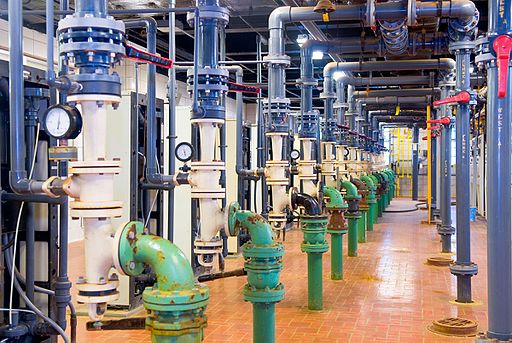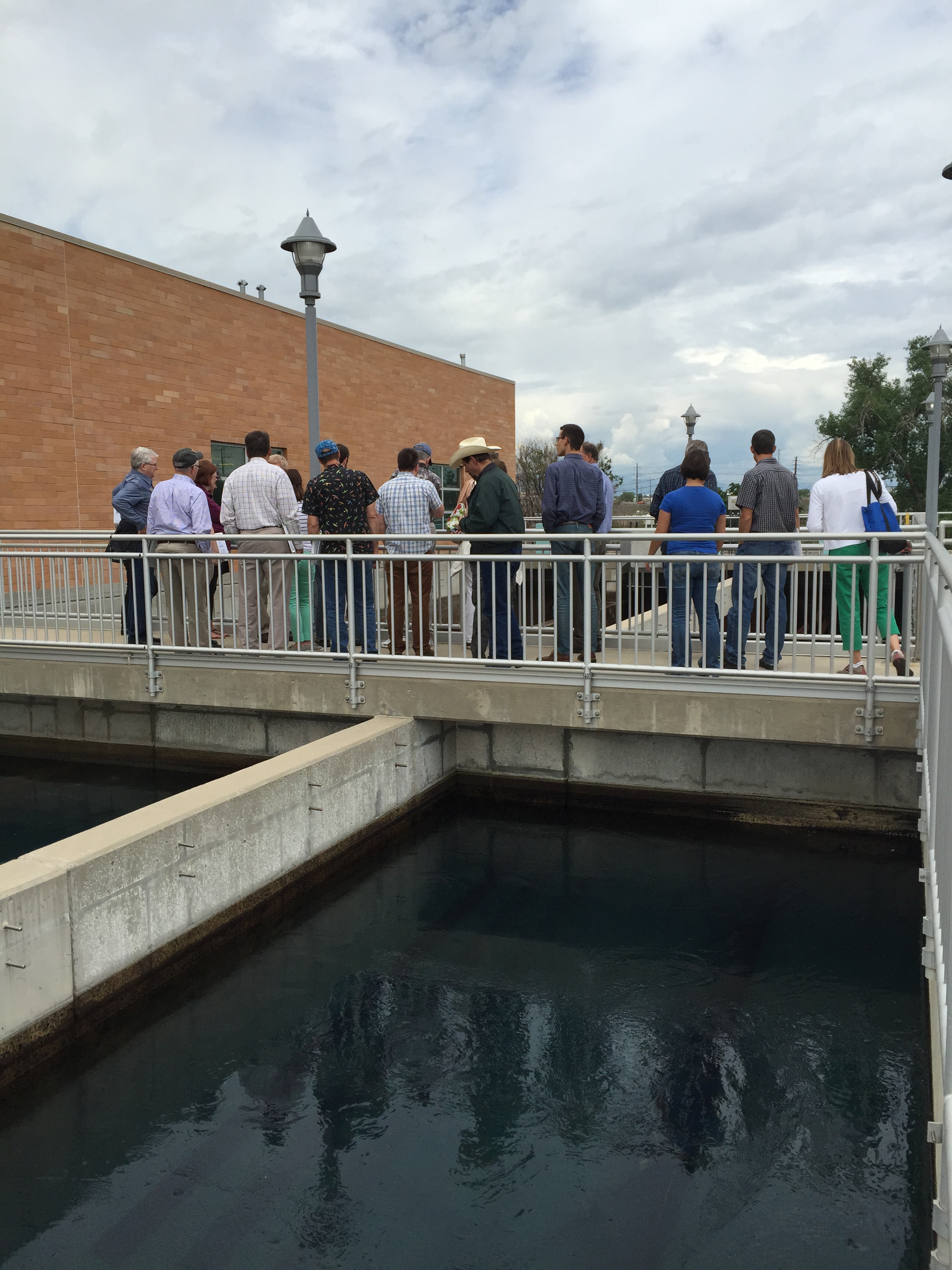By Elaine Hassinger, Water Quality Specialist, Tri-County Health Department
We’ve all learned about the water cycle in school, but most of us probably never think about another way that water cycles throughout our cities and towns, or about the people who make that cycle happen twenty-four hours a day, three hundred-sixty five days a year.

The other water cycle occurs through an intricate system of sanitary sewers, wastewater treatment plants, drinking water treatment plants and drinking water distribution systems; all of which are interconnected to either surface water or groundwater sources. The people at the forefront who make the cycle happen are drinking water and wastewater plant operators.
Drinking water plant operators make sure the water we drink has been treated to meet all regulatory standards for public health. Wastewater operators make sure the water we have used is sufficiently treated for release back into waterways. The job these workers do every day is critical to ensure that we all have a safe water supply.
What do Operators Need to Know?
Water treatment jobs are so critical, in fact, Colorado Regulation 100, Water and Wastewater Operators Certification Requirements, requires all water treatment facilities to be run by certified operators. Operators progress through four levels of certification and are hired by a facility based on the level of certification that coincides with the operator’s assigned duties and the water facility’s classification. Each certification level requires the operator to pass a test that measures mastery of specific criteria such as regulations, mathematics, hydraulics, and laboratory procedures.
The knowledge and skills that water treatment operators possess is vital, especially as more people move to Colorado and put a strain on our water resources, and more contaminants are found in our water supplies. Unfortunately, recent research indicates that a shortage of experienced water treatment personnel is on the near horizon. According to the WeiserMazars’ 2014 US Water Industry Outlook, the two most significant challenges facing the water industry are aging infrastructure, followed by the aging and approaching retirement of management and plant workers. The water industry is in need of more treatment operators.
 How is Water Treated?
How is Water Treated?
So how is water treated? Here’s the quick version of drinking water treatment. Treatment plants divert water from rivers or streams and screen out large items. The water is conveyed to large tanks where chemicals are added that make suspended particles clump together. The clumps settle to the bottom and the clear upper layer is drained off and filtered through layers of sand, gravel or other material. The filtered water is then disinfected, stored and distributed to customers.
And the quick version of wastewater treatment: As wastewater reaches a treatment plant from the sewer system, large items and grit are screened out. The remaining wastewater is diverted to aeration basins for treatment by beneficial microbes that feed on pollutants. Next are the clarifiers, where solids settle to the bottom. The clarified upper layer flows to a disinfection unit. After disinfection treated wastewater is ready to be released to a river or stream. Meanwhile back at the clarifier, the settled layer, or sludge, receives further treatment and may be landfilled.
Keep in mind that these examples are very, very basic and there are many different types of treatment plants and systems and many different configurations.
What do Water Operators Do?
Typical duties of a water treatment operator include reviewing the Supervisory Control and Data Acquisition (SCADA) system to check trends in plant operations, manually inspecting equipment and gauges, collecting water samples, performing laboratory tests, and solving simple mathematical calculations. Shifts can vary. Some plants have three daily shifts; others only one. Rotating shifts, weekend work and work on holidays may also be necessary.
How to Get Started in the Industry
If you’re interested in changing careers or just starting out, a job as a water treatment operator will always be in demand, offers advancement as well as the possibility for other options. Jobs are usually posted on web sites of water and wastewater utilities and applications filed online. Some jobs are posted on the American Water Works Association’s (AWWA) Career Center page. A smaller treatment plant may hire you for an entry level position even if you don’t have a certificate and let you work under supervision during your probationary period. Continued employment would be contingent on earning the certificate. On-the-job training and upward mobility are common at most plants.
Water and wastewater treatment operator careers can lead to other industry related positions. It all depends on what interests you and what and how much training you want to pursue. You may find that you’d rather spend all day in the laboratory analyzing water samples. Maybe you’re fascinated by the treatment of wastewater and want to help keep industrial pollutants out of wastewater plants. Industrial pretreatment would be a career for you. With the right training, either of these water fields is an option.
My Experience in Wastewater Treatment
So you may be wondering if I know what I’m writing about. Well, yes. My stint as a wastewater treatment operator was brief, but I continue to hold my certificate and have worked in the water industry for nearly two decades. Some of my favorite memories of my time at the wastewater plant: examining microscope slides with living microbes; conducting laboratory analyses of wastewater samples; doing process control calculations; watching spectacular Colorado sunrises, and observing bald eagles, and other waterfowl at the facility’s finished water reservoir. You can’t see any of that from a cubicle.
Elaine has approximately twenty years of water industry experience including industrial pretreatment, water resources, water quality, wastewater treatment operations, laboratory analyses, public education and cross-connection and backflow prevention management. She holds a BS in Biology and MAS in Environmental Policy and Management. She currently works for Tri-County Health Department as a Water Quality Specialist.

 Print
Print
Reblogged this on Coyote Gulch.
Thank you for this interesting article that goes through the water treatment process. It is underappreciated.
When you consider that a town or city has daily usage of 1000s of gallons of water and the resulting waste, it is pretty impressive that we have this infrastructure in most of our cities and towns. We really do take potable water for granted.